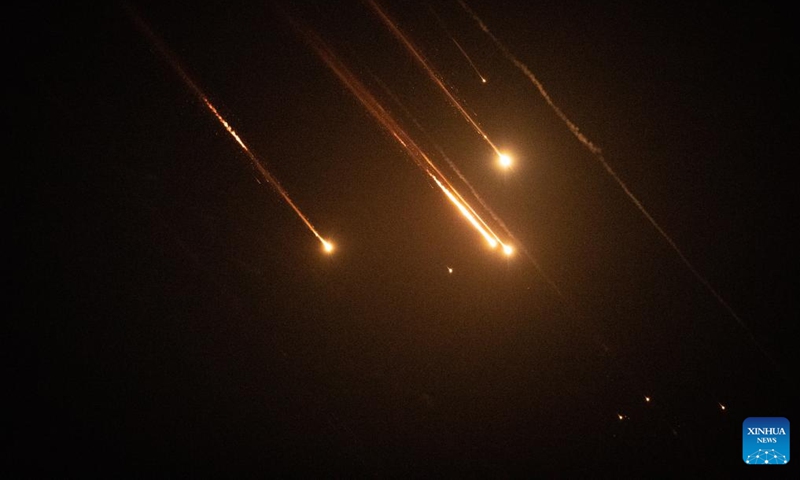Middle East crisis to intensify if THAAD deployed in Israel: expert

If the US deploys a Terminal High Altitude Area Defense (THAAD) anti-missile system in Israel, the regional crisis and ongoing conflicts could worsen as the deployment could further break the balance of power in the region, analysts said on Sunday.
Washington is reportedly considering deploying the system to protect Israel as the US ally's bloody operations in the region have resulted in retaliations from Iran and other armed groups in the Middle East.
A US official told The Times of Israel that US President Joe Biden's administration is considering transferring the THAAD systems to Israel, "but adds that a decision has not yet been made," the Israeli media reported on Sunday.
Earlier, several Israeli reports claimed that the US will deploy the anti-ballistic missile system in Israel - including sending American troops to Israeli soil to operate it - as part of preparations for the "expected Israeli response to Iran's recent missile attack."
By attacking Iran and other anti-Israel forces in the region, Israel is purposefully building a dangerous security environment for itself and deliberately making as many enemies as possible. This will force the US to spend more resources to protect Israel and will win more support and supplies from the US. Israeli Prime Minister Benjamin Netanyahu is firm in his belief that the US will unconditionally protect Israel, which is why Israel has no concern about acting so aggressively, analysts said.
Currently, Israel is closely coordinating with the US, which shows Israel understands the US does not want to be involved directly in the ongoing crisis. Therefore, Israel is taking advantage of the US mind-set to bargain with Washington for more support, such as the THAAD system. Perhaps the reason why Israel is yet to attack Iran is that it is waiting for a US pledge of new support, Li Xinggang, a research fellow at the Institute for Studies on the Mediterranean Rim at Zhejiang International Studies University, told the Global Times on Sunday.
If THAAD is deployed in the region, Iran's deterrent toward Israel will be weakened and Israel will be able to conduct more direct and assertive actions against Iran and other regional countries without concern. This would break the balance of power in the region and will force Tehran to take actions to prevent this from happening, said a Beijing-based military expert who asked for anonymity on Sunday.
Now, US officials have dropped their calls for a cease-fire in the region, arguing that circumstances have changed, Reuters reported on Sunday. "We do support Israel launching these incursions to degrade Hezbollah's infrastructure so ultimately we can get a diplomatic resolution," US State Department spokesperson Matthew Miller told a press briefing on Wednesday.
The course change reflects conflicting US goals - containing the ever-growing Middle East conflict while also severely weakening the Iran-backed Hezbollah, Reuters reported.
Due to tolerance or support from the US, Israel's actions are becoming increasingly outrageous, said experts, as now Israeli forces are firing at UN peacekeeping forces in the region.
"Israel Defense Forces (IDF) fired on UN peacekeepers in Lebanon early Thursday morning," said the UN Interim Force in Lebanon, the mission operating along the Security Council-mandated "Blue Line" of separation between the two countries which they patrol, according to the UN.
"UNIFIL's Naqoura headquarters and nearby positions have been repeatedly hit," the UN mission said in a statement. "This morning, two peacekeepers were injured after an IDF Merkava tank fired its weapon toward an observation tower at UNIFIL's headquarters in Naqoura, directly hitting it and causing them to fall.
Israeli Prime Minister Benjamin Netanyahu urged the United Nations on Sunday to evacuate troops in its UNIFIL peacekeeping force from combat areas in Lebanon, Reuters reported.
The more one-sided the support the US offers, the more outrageously Netanyahu's administration will act, and the more dangerous, isolated and hated Israel will be in the region and among the international community, experts noted.